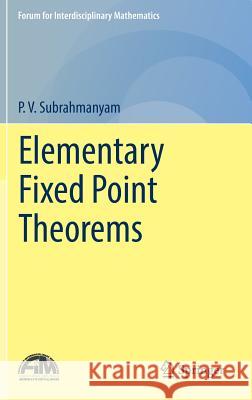Elementary Fixed Point Theorems » książka
topmenu
Elementary Fixed Point Theorems
ISBN-13: 9789811331572 / Angielski / Twarda / 2019 / 302 str.
Kategorie:
Kategorie BISAC:
Wydawca:
Springer
Seria wydawnicza:
Język:
Angielski
ISBN-13:
9789811331572
Rok wydania:
2019
Wydanie:
2018
Ilość stron:
302
Waga:
0.62 kg
Wymiary:
23.39 x 15.6 x 1.91
Oprawa:
Twarda
Wolumenów:
01
Dodatkowe informacje:
Wydanie ilustrowane











